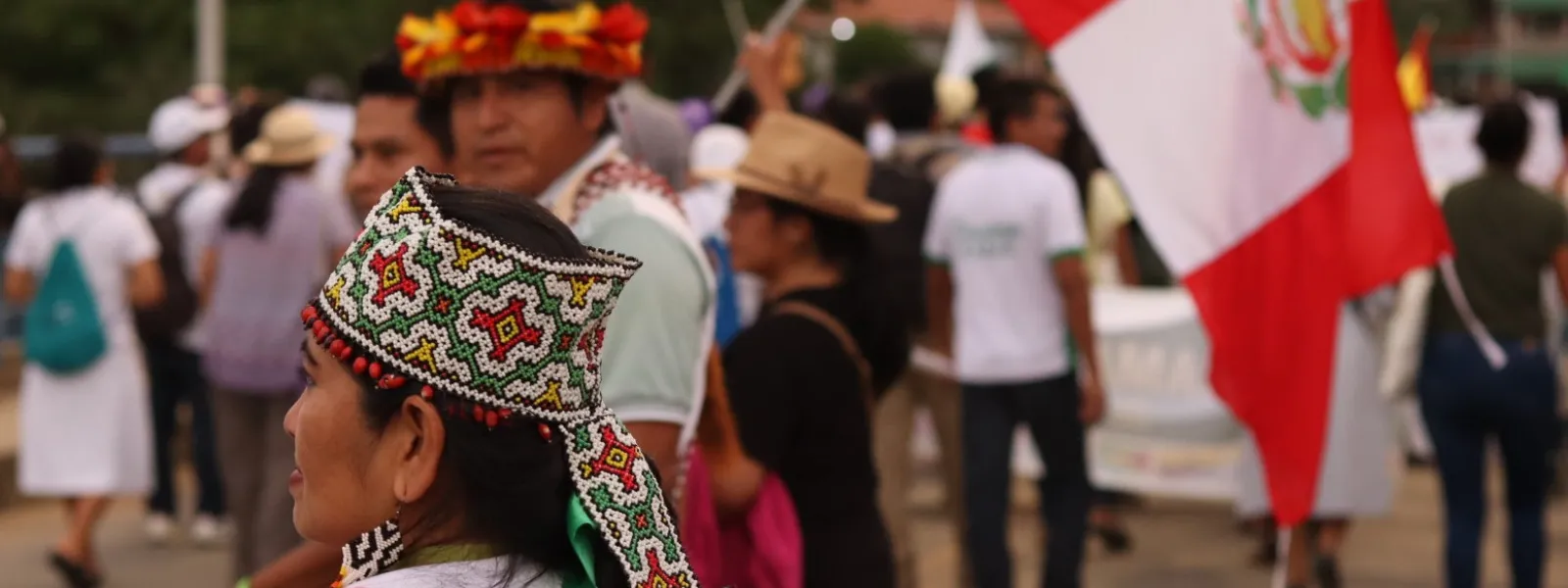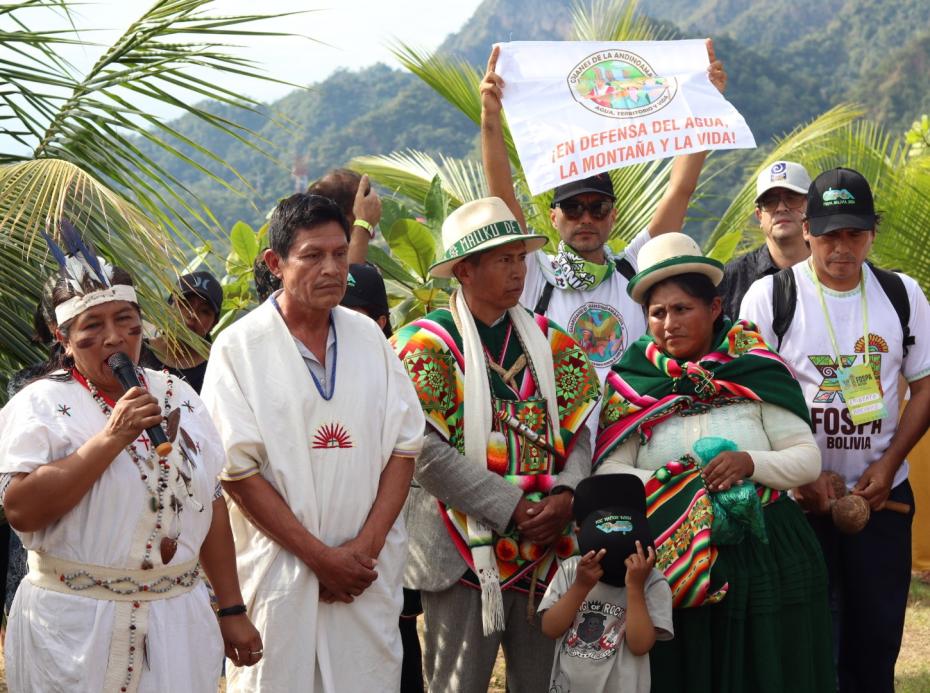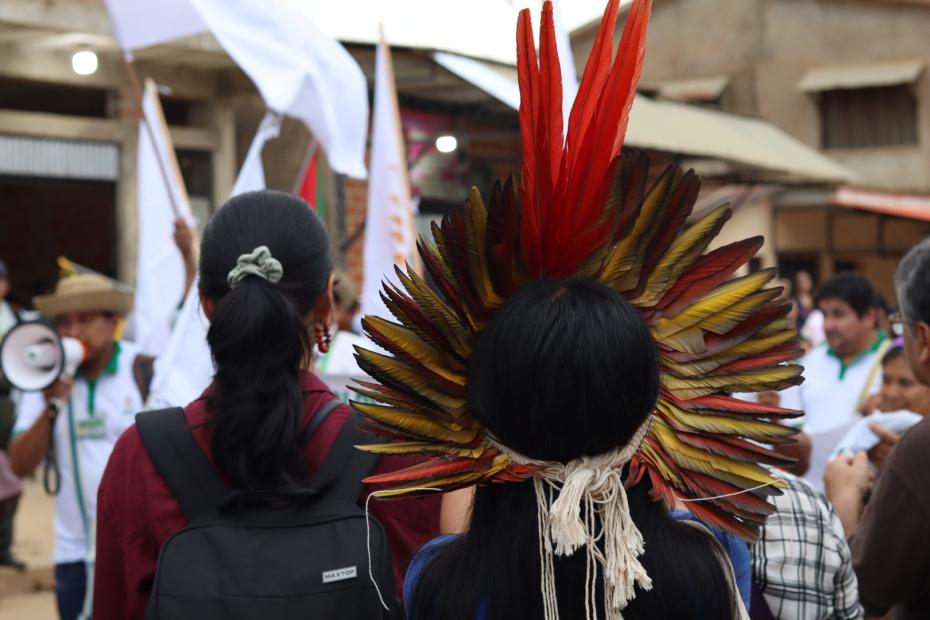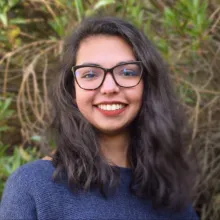
The Amazon: The complexities and challenges of its protection
Photo: José David Castilla.By Vania Albarracín and José David Castilla*
Protecting the Amazon is one of the region's greatest challenges. Facing it requires coordination and cooperation between states, peoples and organizations.
In this context, the Pan-Amazonian Social Forum (FOSPA) was born out of the need to think about the Pan-Amazonian region - a region made up of the countries that have jurisdiction or territory in the Amazon basin, and/or have jungle coverage, and/or are part of the Amazon Cooperation Treaty (TCA) - in all its complexity. FOSPA is a regional space for articulation, reflection and exchange between indigenous peoples, social movements and civil society from Bolivia, Brazil, Colombia, Ecuador, Guyana, French Guiana, Peru, Venezuela and Suriname.
The reason why so many actors have come together around the Amazon is that it is a mega-diverse ecosystem and a global climate stabilizer, containing more than 13% of all known plant and animal species and releasing 6,600 km³ of freshwater annually into the Atlantic Ocean, representing between 16 and 20% of global runoff. It is therefore essential to consider the interconnections and interdependencies between the Amazon and other ecosystems in the region. Marine-coastal ecosystems, Andean wetlands, mountain ranges and forests are interconnected throughout the continent and should be recognized as part of a comprehensive conservation strategy.
The Amazon region is facing serious problems of deforestation and ecosystem degradation, which have led to warnings of reaching the so-called point of no return. This refers to the loss of the ecological balance and climatic functions of the Amazon, which would have incalculable negative global repercussions.
FOSPA holds biannual meetings in different cities and sub-regions of the Amazon to discuss the violations of human, environmental, territorial and natural rights that afflict the region, as well as to propose alternatives that come from the local communities and indigenous peoples that inhabit the region.
The eleventh version of FOSPA was held from June 12 to 15 in the cities of Rurrenabaque and San Buenaventura, in the Amazon region of Bolivia. The meeting resulted in a joint declaration in defense of life, peoples and nature.
AIDA participated in the meeting and we share below our assessment of the main agreements, the gaps in their implementation and what is missing to ensure the protection of the Amazon.

The agreements
1. Mining threats
The threats posed by mining to the Amazon region can be seen in two key issues: the promotion and impact of new extractivism (such as copper mining) and mercury contamination from gold mining. The meeting highlighted the need to ban the global trade of mercury and to develop multinational strategies to combat its use in gold mining, in accordance with the Minamata Convention.
In addition, a biocultural approach to assessing the impacts of mining was advocated, recognizing the interrelationship between biodiversity and indigenous cultures, the fundamental role of women in preserving and reproducing life, and the participation of civil society in decision-making spaces, ensuring transparency and full disclosure.
2. An Amazon free of extractivism
One of the main concerns of the communities, peoples and organizations that participated in the meeting is the presence of different types of extractivism in the Amazon region. They recognized that their rights are violated and threatened by hydrocarbon extraction and transportation projects, by the exploitation of transition minerals such as gold and copper, and by the implementation of public policies related to the energy transition.
One of the most relevant proposals in this regard was to generate a multifactorial and plurinational declaration of the Amazon as a zone free of fossil fuels and mining, not only as a slogan, but as a political, social and environmental horizon for the protection of life in all its forms. This proposal must be evaluated in the context of the different tensions and social realities of the region.
3. Guarantees for a just and popular energy transition
A just and popular energy transition was another relevant point of the meeting. Indigenous communities and peoples raised the need to decolonize the concept of energy transition and propose a process that comes from them, who have historically suffered the impacts of extractivism. The call was for an energy transition that remediates these impacts and restores affected ecosystems.
Achieving this goal requires responsible project closure and exit processes, as well as transition processes that incorporate the highest human rights standards and the perspectives of affected communities.
Practical gaps
1. Insufficient commitment to regional cooperation
The eleventh version of the FOSPA revealed a lack of political commitment on the part of the member governments of the Amazon Cooperation Treaty Organization (ACTO), reflected in the absence of firm agreements and mechanisms for effective participation. This favors extractivist policies and weakens the protection of indigenous and environmental rights. It is essential that ACTO review and strengthen its structures to ensure that international commitments are implemented and that pan-Amazonian communities play an active and decisive role in policy formulation.
2. Exclusion of indigenous peoples and communities from the decision-making process
The exclusion of indigenous peoples and indigenous Amazonian communities from decision-making processes is evident. This results in policies and agreements that do not reflect their needs and realities. A clear example of this is the Conferences of the Parties (COP) on climate change and biodiversity, where indigenous representation is not real or substantive, resulting in a failure to value their ancestral knowledge and fundamental role in biodiversity and climate protection.
3. Absence of a binding mechanism
The implementation of agreements reached in forums such as FOSPA has been inadequate and, in many cases, non-existent. This has been one of the main demands of indigenous peoples and communities. Due to the non-binding nature of FOSPA and its lack of relevance to the state perspective, many of the demands remain in the realm of declarations. Although the FOSPA is essential for pan-Amazonian integration and the construction of alternatives from the territories, a joint effort is needed to strengthen its link with decision-makers, to promote the active participation of communities and to turn the forum into a platform for mobilization and action.
The road ahead
The next FOSPA meeting will take place in two years, but the effective protection of the Pan-Amazon region cannot wait.

In the short term, it is necessary to take concrete actions to mitigate the impacts on the ecosystem and to adopt regional cooperation measures to ensure its integral and transboundary protection. Among other things, it is necessary and urgent:
- Achieve a regional consensus and design a plan to guarantee the declaration of the Amazon as a zone free of fossil fuels and all forms of extractivism.
- Coordinate an Andean-Amazonian and coastal articulation for the integral defense of territories, demanding concrete actions against mining with a biocultural approach.
- Demand regulatory frameworks for environmental and human rights due diligence in the Amazonian countries and in the countries of origin of the companies, in order to oblige them to comply with international standards in these two areas.
- Urge states to apply the principles of prevention and precaution and to raise their standards for projects that may affect the Amazon.
- Develop a mechanism for the closure and phasing out of fossil fuel extraction projects in the Amazon.
- Guarantee the active, representative and binding participation of Pan-Amazonian communities and peoples in international forums where decisions are made about nature, such as the next UN Conference on Biodiversity (COP16 in Colombia) and the next UN Conferences on Climate Change (COP29 in Azerbaijan and COP30 in Brazil).
*Vania Albarracín Silva is an attorney with AIDA's Ecosystems Program and José David Castilla Parra is an attorney with Human Rights and Environment Program.
Vania Albarracín Silva

Vania Albarracín Silva is Bolivian and a junior attorney with AIDA's Territories Program, working from La Paz, Bolivia. She is a lawyer from the Universidad Privada Boliviana and a sociology student at the Universidad Mayor de San Simón (Cochabamba, Bolivia). She holds a diploma in Sustainability and Social Justice from the Latin American Council of Social Sciences (CLACSO). Vania has experience working with social organizations in defense of the environment and territory.
